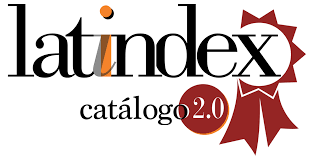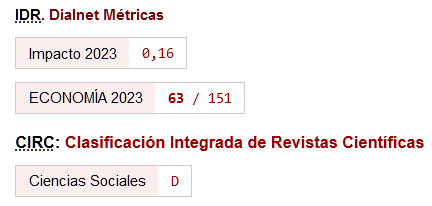Submissions
Submission Preparation Checklist
As part of the submission process, authors are required to check off their submission's compliance with all of the following items, and submissions may be returned to authors that do not adhere to these guidelines.- The submission has not been previously published, nor is it before another journal for consideration).
- The text complies with the bibliographic and style requirements indicated in the Author guidelines.
- When submitting a paper to a peer-reviewed journal, make sure your paper does not contain data or metadata (file properties) with your identity.
- Need help uploading the document? Problems with the platform? If you have any questions or problems, please contact revistaec@gmail.com
Articles
Política de sección por defecto
Copyright Notice
Free and open access is allowed to any interested party to all the contents of the journal's issues, free of charge, and all articles may be printed and transferred, with the sole condition of specifying the source and authorship.
This journal does not charge authors for publishing, i.e. it does not have article processing charges (APC's).
This journal also does not charge any submission fees (the journal does not have article submission charges).
This journal maintains copyright for authors without restrictions, and makes it easy for authors to retain their publication rights without limitations.
Authors are allowed and encouraged to deposit the version accepted for publication in institutional repositories or on their own website, as it may lead to productive exchanges, as well as earlier and higher citation of published papers.
Revista de Economía Crítica is an original work of Asociación de Economía Crítica. All articles included in the Journal are the original work of their respective authors. This Journal is freely offered to the scientific and academic community at no cost and releases the contents according to the ‘Attribution 4.0 CC BY’ licence of the Creative Commons project available at the following url: https://creativecommons.org/licenses/by/4.0/
Privacy Statement
The names and email addresses entered in this journal site will be used exclusively for the stated purposes of this journal and will not be made available for any other purpose or to any other party.






